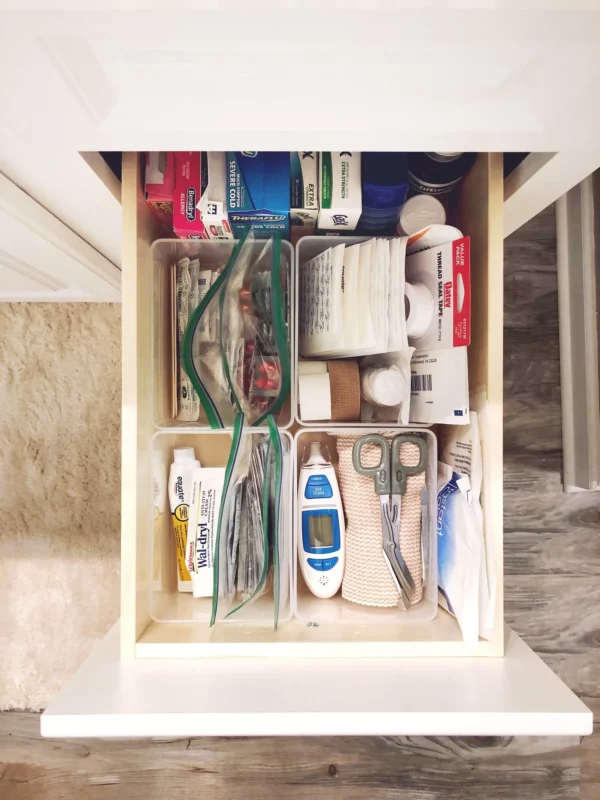
Essential Items to Look After Your Health at Home
Looking after your health is incredibly important, especially as you get older. While regular checkups can help you stay on top of any health issues, it’s not always possible to see a doctor straight away. If you’re having a health emergency, you should definitely visit a hospital. However, it’s possible to treat a lot of issues at home or to at least administer first aid before travelling to the hospital.

It’s a good idea to have a first aid kit at home, which should include essential items to help you look after your health. A first aid kit doesn’t have to be complicated or expensive, but it should have everything you need in case of an emergency or to treat common ailments. Here are a few essential items that every home should have if you want to take your health seriously.
Thermometer
A thermometer is an important piece of equipment for any household. If you have kids, you’ll be used to their regular colds and fevers, which happen most years. To properly diagnose a fever and give the best medical care, you need to be able to accurately measure temperature. Thankfully, technology has given us the electronic thermometer that’s more accurate and easier to use than ever.
Most digital thermometers can be used to quickly check your internal body temperature using infrared technology. This means you won’t have to insert the device into the body and get a quick and accurate reading without any issues. Thanks to this, diagnosing a fever is easy, and you can then work on providing proper medical care and ensuring that the person gets enough rest.
Blood Pressure Monitor
Most visits to the doctor will involve a quick check of your blood pressure just for their records. However, you can also keep track of your blood pressure at home. This is definitely worth doing, as it lets you keep a close eye on your health and ensure you’re not at risk of serious medical incidents.
Checking your blood pressure is very easy, and by logging it, you can work out if you need to make changes to your diet and lifestyle to improve your overall health.
Plasters
Plasters are a key part of any first aid kit, as they’re perfect for repairing small cuts and scrapes on the skin. You can use plasters almost anywhere on the body, and they’re great for stopping bleeding and ensuring the wound doesn’t get infected by being exposed to foreign particles. Before applying the plaster, always make sure you clean the affected area. You should also check how deep the cut is to make sure no stitches are required.
Ideally, your plasters should be waterproof, and it’s a good idea to get an assortment of different shapes and sizes. This way, no matter where the injury is and how big it is, you’ll always be able to treat it properly. Blister plasters are another good item to include, especially if you do a lot of walking.
Antiseptic Wash
When washing a cut, scrape or graze, clean, cold water is often best. However, some wounds are caused by coming into contact with something that might be dirty or unclean. You need to prevent the chance of infection, and the best way to do this is by using an antiseptic wash. There are lots of different antiseptic creams and washes available on the market, though it’s important to get one that can be used on the body.
Soap and water are often enough for most cuts, but antiseptic wash or wipes can be used to give you additional peace of mind and avoid the chances of an infection. This is especially helpful in preventing nasty outbreaks of MRSA, which can cause serious problems.














































